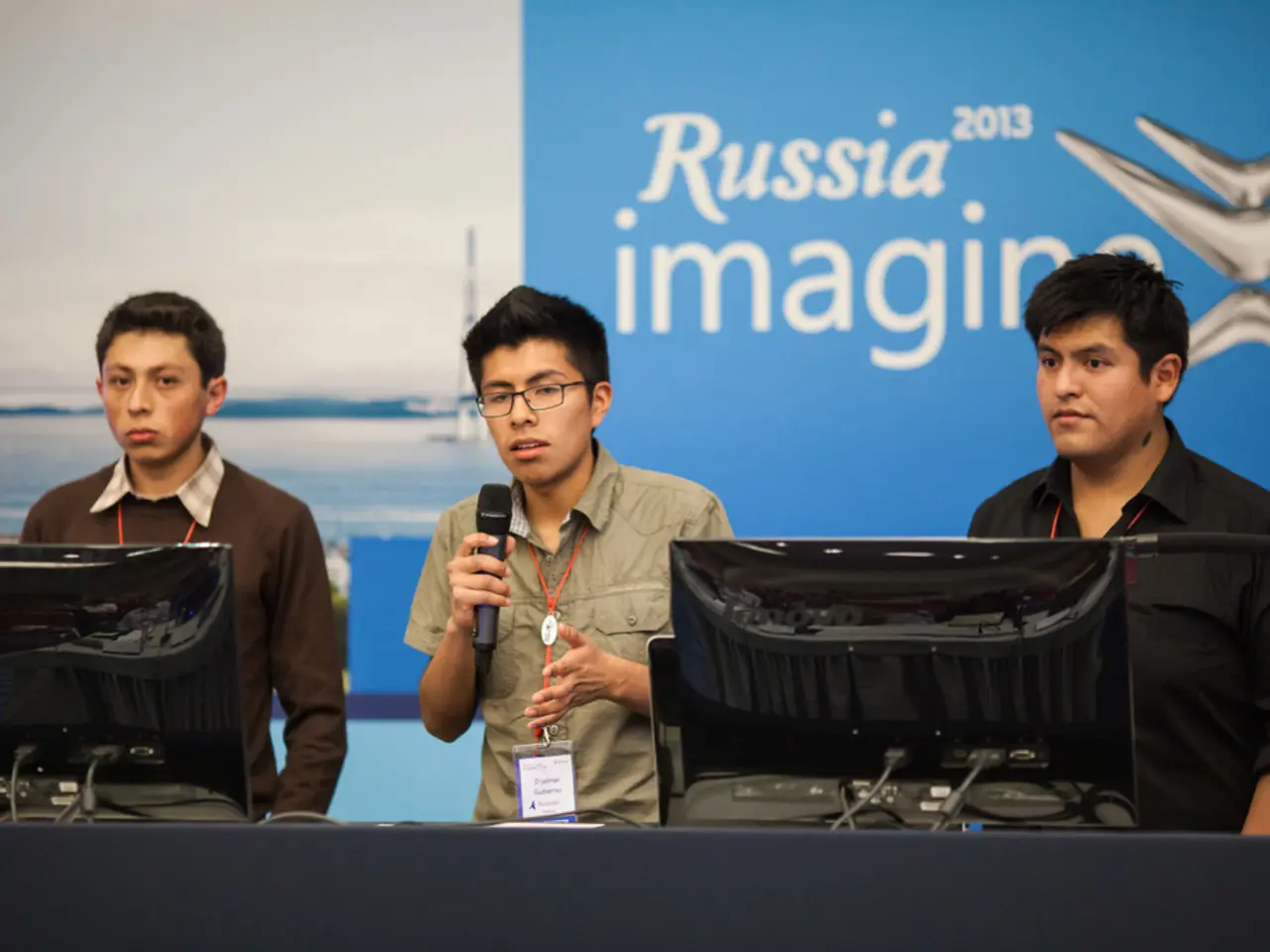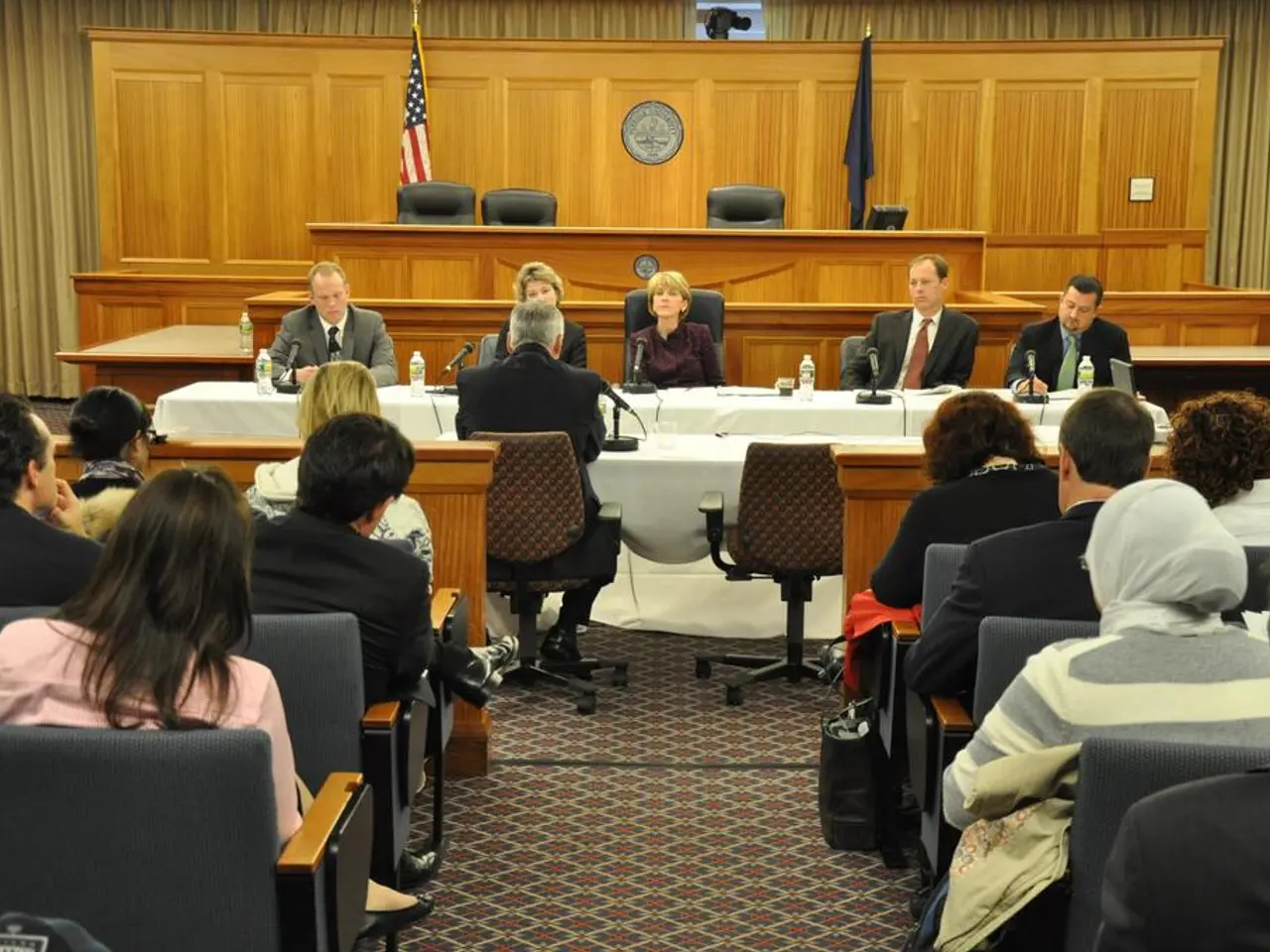Busted! EU Summit Squabble Reveals Energy Bonds with Russia
EU officials extend existing restrictions against Russia, yet fail to reach consensus on a fresh sanctions plan.
Brussels bustles — The European Union's (EU) powwow in Brussels last Thursday unveiled a rift among the bloc's leaders following their failure to ink a new sanctions package against Russia, due to objections raised predominantly by Slovakia.
The intrigue arises from Slovakia's leader, Roberto Fico, strong-arming the EU summit by bucking the proposed 18th round of sanctions, grounded in a separate feud brewing between Brussels and Slovakia over gas imports from Russia.
Tensions ignited over the EU's strategy to phase out Russian gas tolls, a move that Slovakia finds offensive due to its reliance on Russian energy resources. Slovakia demands concessions from Brussels to guarantee the repercussions of cutting ties with Russia won't jeopardize its energy security and cripple its economy.
Fico sought cooperation during discussions with EU chief Ursula von der Leyen but walked away empty-handed, transparently vowing to obstruct the sanctions package's approval. Simultaneously, Ukrainian President Volodymyr Zelensky implored EU leaders to be bold against Russia by targeting oil trade, fishing fleets, financial institutions, and weaponry components.
The extended imposition of the previous sanctions keeps an estimated EUR 200 billion in Russian central bank assets frozen, with the sanctions now persisting until early 2026. However, the impasse, provoked by Slovakia, halts the progression of more stringent sanctions against Russia.
Behind the Curtains:
Slovakia's opposition to the EU sanctions against Russia primarily arises from energy security concerns. Slovak Prime Minister Robert Fico explicitly declared his readiness to scupper any EU sanctions harmful to the country, emphasizing Slovakia's intention to act harmoniously within the EU without compromising its sovereignty. The crux of the discord is built around the EU's plans to discontinue Russian gas, an endeavor Slovakia resists due to its dependency on Russian energy. Slovak officials plead for assurances from Brussels to cushion the impact of the energy transition, fearing the sanctions could undermine Slovakia’s energy security and financial health.
At the EU conference in Brussels, Slovakia flexed its veto muscle, preventing the approval of the 18th sanctions package against Russia. The Slovak Foreign Minister Juraj Blanár conceded that Slovakia would lift its veto only if the EU delivers assurances to mitigate the hazards related to the energy transition away from Russian gas. This stance mirrors Hungary's position, which similarly bottlenecked the sanctions package over the same reasons.
In essence, Slovakia's resistance at the EU conference and the ongoing standoff with Brussels stem from the necessity of safeguards to protect Slovenia's energy supply and economic interests before endorsing the EU's strategy to grant its Russia gas imports as punitive measures against Russia.
- The ongoing dispute at the EU summit over sanctions against Russia is deeply rooted in politics and policy-and-legislation, with Slovakia resisting the 18th round of sanctions due to concerns about war-and-conflicts, particularly energy security.
- General news coverage of the EU summit reveals a standoff between Slovakia and Brussels, with Slovakia using its veto power to block the sanctions policy against Russia, citing the need for concessions to ensure their energy supply and economic stability.








